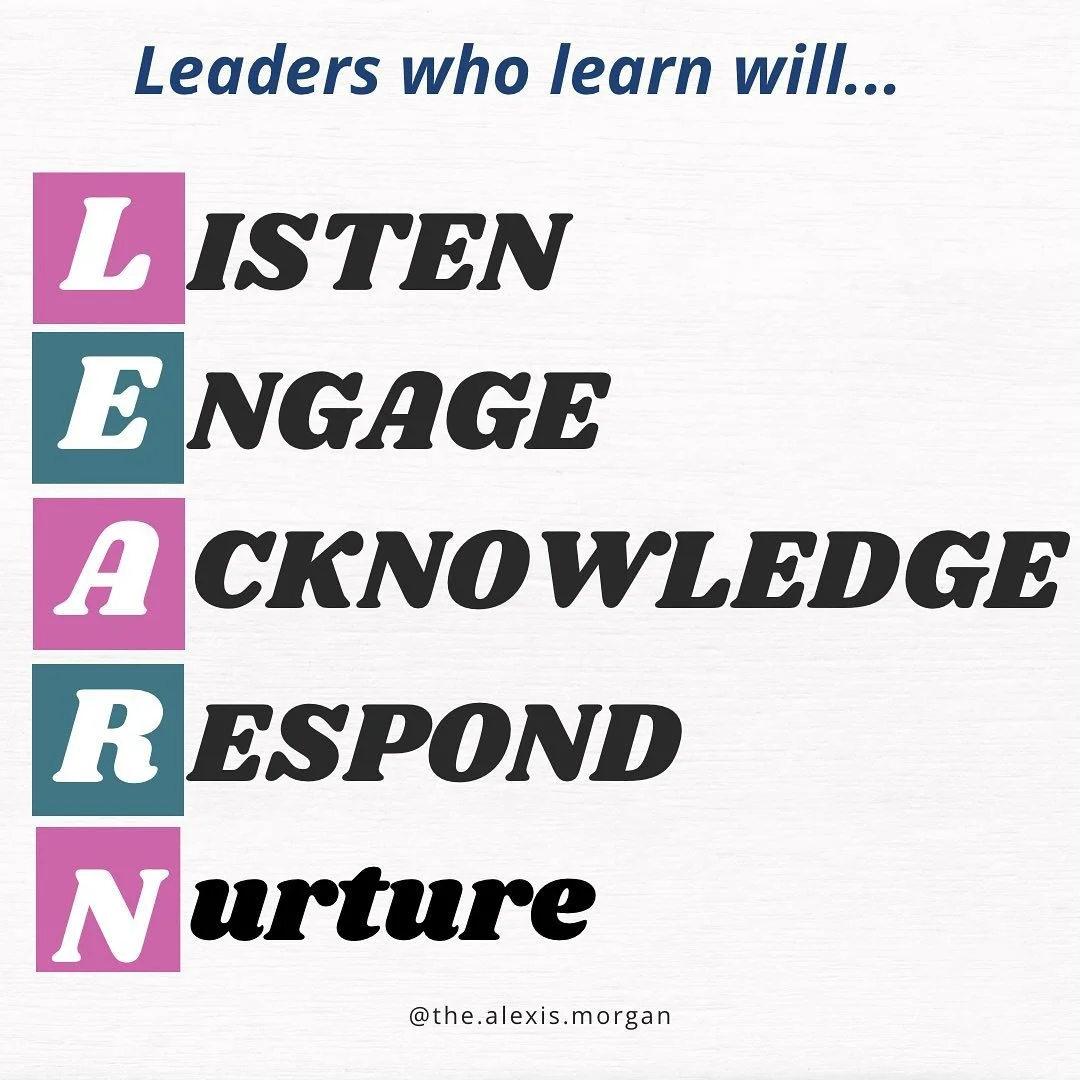Leaders Who Learn
All organizations and businesses have leadership positions. Organizations have presidents, CEOs, superintendents, department heads, or team coaches, the list goes on and on. Businesses of all sizes, including small businesses, have owners, who run their companies. All of these positions are leadership positions, which means by default, all of the people within those roles are leaders.
The big asterisk at this moment is that the above statement actually doesn’t feel true. Not all people serving or working within those positions are actually leaders. In a company hierarchal setting, where leadership positions have downline employees they are responsible for, those employees may not feel their bosses or supervisors are actually leaders.
This comes to the all-important question, what does it mean to be a leader? Good question. Books have been written on that subject. Myriads of blogs, public speakers, and academic writing are devoted to exploring answering that question.
I do not claim to have the sole answer to what makes a good leader. But for someone who has studied leadership, been in roles to have leaders in my life, and been in several leadership positions, I believe all leaders need to be learners.
Leaders who L.E.A.R.N. are willing to:
Listen
Engage
Acknowledge
Respond
Nurture
Leaders listen to those around them. They take in the information needed to help create an atmosphere of inclusion, diversity, and openness of thought. They allow others to speak and complete their thoughts.
Leaders engage in the process of discovery. They are curious about understanding new content. They are interested in the ideas of others. Yes, leaders of organizations or businesses do get to make the big decisions, and they care about understanding all the pieces of the puzzle.
Leaders acknowledge the input of others and themselves. They work to develop a team environment, one where all voices matter. In this team setting, all members work to respect each other. This includes all directions: leaders to employees and employees to leaders.
Leaders respond rather than react. Everyone feels emotions and that’s good. Responding to emotions takes into consideration the desired outcomes rather than impulsively reacting to a situation that may get intense.
Leaders nurture the environment to encourage others to do the same. Leaders know the value of showing up with their hearts. They work to create a workplace culture that fosters and invites others within their organization to do the same.
The world needs leaders who have the courage to lead with their hearts. Leaders who are mindful of their employees. Leaders who are willing to create environments that allow all employees to thrive.
Become the type of leader who is willing to learn. It is this type of forward-thinking leader that creates environments for positive employee engagement and satisfaction for their organization or business.

